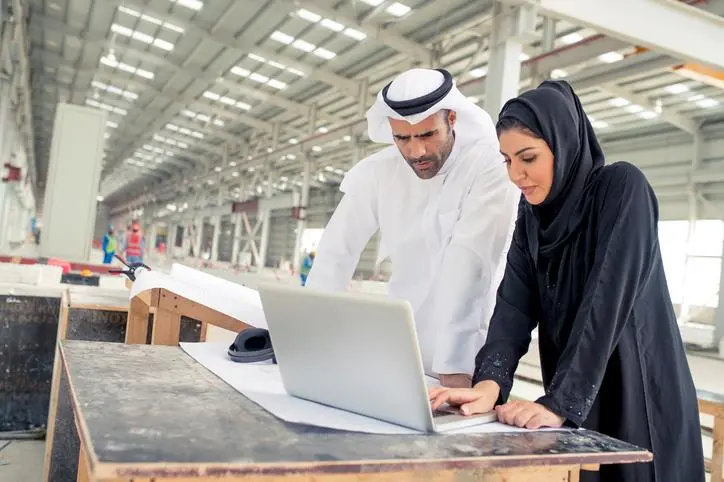PHOTO
The UAE’s efforts in reducing gender gap are “admirable”, Khetsiwe Dlamini, UN Women Chief of Staff said.
Speaking to Zawya on the sidelines of the Women’s Economic Empowerment Global Summit (WEEGS) held in Sharjah, Dlamini said that statistics “show that the UAE in a very short space of time has reduced the gender gap by 64 percent.”
“In terms of education I am very impressed with the educational rate in the UAE, I believe that 70 percent of graduates currently are women, which is really unheard of and as we know education is always a jumpstart to empowerment and economic growth,” Dlamini added.
Abdulla bin Ahmed Al Saleh, the Undersecretary for Foreign Trade Ministry of Economy praised the UAE at the summit for jumping 23 positions to reach 26th globally for gender equality adding that the country was ahead of its goals by reaching this figure.
The goal set by Sheikh Mohammed bin Rashid Al Maktoum, Vice President and Prime Minister of the UAE and Ruler of Dubai, when establishing the UAE Gender Balance Council in 2015 was to rank among the world's top 25 countries by 2021.
Among the initiatives by the UAE to empower women in various fields was a plan to increase women’s representation in the Federal National Council (FNC).
50 percent of the FNC comprises of women and women occupy 33 percent of the leadership positions said Hessa Bint Essa Buhumaid, Minister of Community Development at the summit. The minister also noted that there were nine women ministers in the latest cabinet (30 percent of the cabinet) and 42 Emirati women diplomats.
During the summit, NAMA Women Advancement Establishment announced that 17 public and private sector entities in the UAE who signed up to the ‘Take a Pledge’ initiative, launched by NAMA two years ago, have made progress.
Each organisation had pledged to undertake an initiative, project or programme derived from the Women’s Empowerment Principles (WEPs) launched by UN Women and UN Global Compact.
Amongst the 17 pledges are Sharjah Police, Sharjah Electricity and Water Authority (SEWA), the Abu Dhabi Future Energy Company (Masdar) and Sharjah Education Council (SEC).
Dlamini said that legal frameworks play a huge role in supporting and empowering women. “At UN Women we concentrate in encouraging countries to establish new legal frameworks and new norms, because that is the beginning of change.”
“After legal you have to move on to the practice, because sometimes you have the law that has been removed in terms of discrimination but the practices and the mindsets still discriminate against women so we work (with partners) a lot on stereotypes (ending harmful stereotypes),” Dlamini said, noting that NAMA is a key partner to UN Women.
(Writing by Gerard Aoun; editing by Seban Scaria)
Our Standards: The Thomson Reuters Trust Principles
Disclaimer: This article is provided for informational purposes only. The content does not provide tax, legal or investment advice or opinion regarding the suitability, value or profitability of any particular security, portfolio or investment strategy. Read our full disclaimer policy here.
© ZAWYA 2019





















